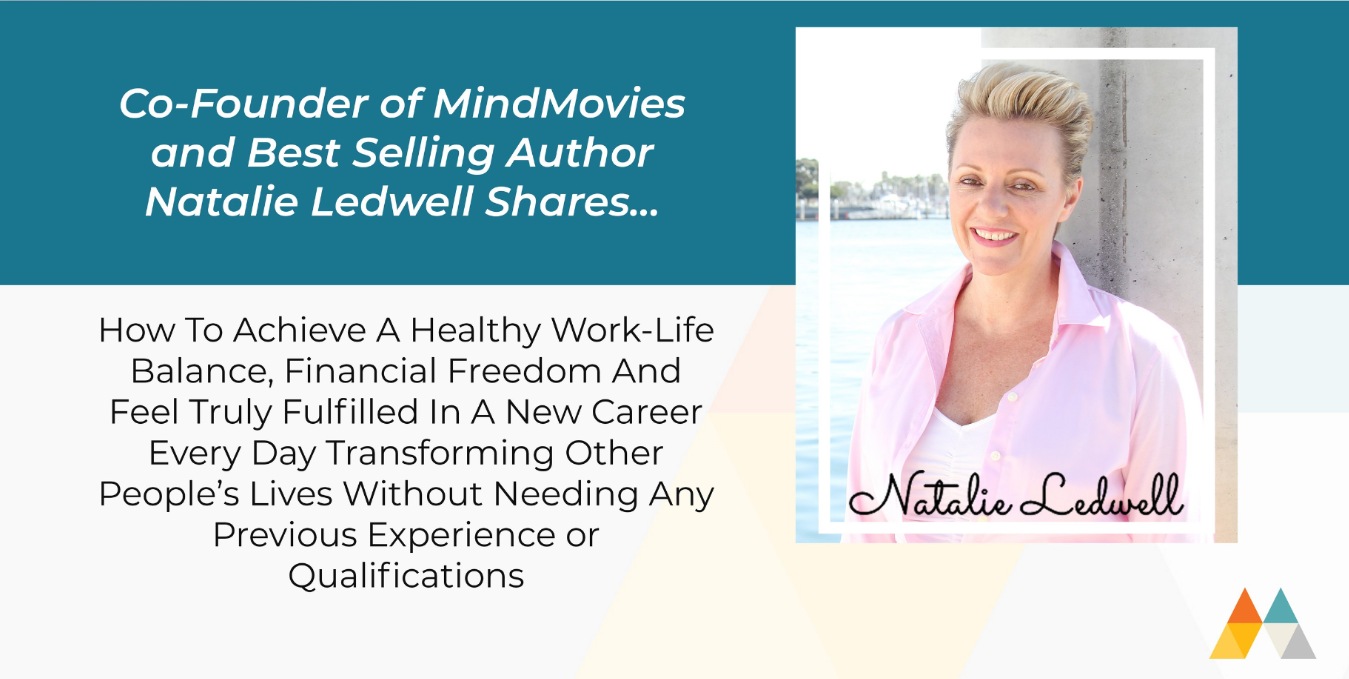Have you ever accomplished something amazing but still felt like a total fraud? Or caught yourself thinking, “I’m not good enough,” even when all signs say otherwise? If so, you’ve probably dealt with imposter syndrome - and trust me, you’re not alone.
The last time imposter syndrome held me back from something truly incredible started with a completely unexpected phone call.
The Dean of Real Social University in Colombia was on the line. He had heard about my work in personal development and wanted me to design an official personal growth curriculum for kids.
I was shocked!
On one hand, I was beyond honored - blown away that they saw me as the right person for this project. But almost instantly, doubt crept in.
"What do I even know about kids?"
And just like that, my excitement turned into uncertainty.
You see, I had no formal background in education, and in fact, I had left school at 15 myself!
How could I possibly create something of true value, knowing there are already so many experts out there who have probably done better?
My mindset went from, “What am I about to get myself into?”
To, “Am I even able to do this?”…
To, “I don’t know if I can do this…”
It was that moment of complete self-doubt that my limiting beliefs were totally taking over. I started to get nervous. I started to sweat. And I instantly felt like the pressure of an ask like this was just too much for me to handle.
So before I could blurt out something I'd later regret, I told the Dean that I would think about it, and I hung up.
Deep down, I knew I couldn’t let this opportunity pass me by. And deep down, I knew I really, really wanted this. But I was still worried that I couldn’t live up to the imaginary expectations I had set for myself.
So I spent the next few days working on my imposter syndrome that showed up during that phone call. No matter how uncomfortable it made me, I was determined to get past this because I knew an opportunity like this was rare.
And as I worked through it, I started recognizing the familiar patterns of imposter syndrome—the same ones that have held so many of us back before. If you’ve ever felt this way, here are some signs to look out for:
Signs You Might Have Imposter Syndrome
-
Downplaying Achievements: You attribute success to luck, timing, or external factors rather than your abilities.
-
Fear of Failure: You’re terrified of making mistakes, believing one misstep will reveal your "incompetence."
-
Perfectionism: You set unrealistically high standards for yourself and feel like a failure when you don’t meet them.
-
Overworking: You work excessively to prove your worth, often at the expense of your well-being.
-
Avoiding Opportunities: You shy away from new challenges, convinced you’re not ready or qualified.
What Causes Imposter Syndrome?
Imposter syndrome often stems from:
-
Unrealistic Expectations: Society and media glorify perfection and success, creating pressure to constantly perform.
-
Early Experiences: Childhood environments that emphasize achievement or comparison can shape self-perception.
-
New Roles or Milestones: Starting a new job, pursuing higher education, or achieving a significant milestone can trigger feelings of inadequacy.
Understanding the root of your imposter syndrome is the first step to overcoming it. Now let’s explore actionable strategies to overcome it.
1. Acknowledge Your Feelings
The first step to overcoming imposter syndrome is recognizing it. When you feel like a fraud, pause and label the emotion as imposter syndrome. Remind yourself that these feelings are common and not a reflection of your actual abilities.
2. Reframe Your Thoughts
Imposter syndrome thrives on negative self-talk. Replace thoughts like, “I’m not qualified for this role,” with, “I was chosen for a reason, and I’m learning and growing every day.” Challenge the narrative that you need to be perfect or know everything.
3. Focus on Facts
Keep a record of your accomplishments, positive feedback, and milestones. When doubt creeps in, revisit this list as evidence of your capabilities. Facts can help counteract the distorted beliefs imposter syndrome creates.
4. Share Your Experience
Talk to someone you trust about your feelings. You’ll likely find that many people—even those you admire—have felt the same way. Sharing your experience can normalize these feelings and help you gain perspective.
5. Embrace Lifelong Learning
You don’t need to know everything to succeed. Shift your mindset to view gaps in knowledge as opportunities for growth. This approach fosters confidence and reduces the pressure to be perfect.
6. Celebrate Your Wins
Imposter syndrome often causes people to dismiss their achievements. Make it a habit to celebrate your successes, no matter how small. Acknowledging your progress reinforces your sense of worth and competence.
7. Focus on Your Impact
Instead of dwelling on how you measure up, focus on the value you bring to others. Whether it’s your work, creativity, or kindness, remember that your contributions matter.
8. Redefine Failure
Fear of failure is a common trigger for imposter syndrome. Shift your perspective to see failure as a learning opportunity rather than a reflection of your worth. Every mistake brings valuable lessons that contribute to growth.
9. Seek Mentorship or Coaching
A mentor or coach can provide guidance, encouragement, and an objective perspective. They can help you recognize your strengths and navigate challenges with confidence.
10. Practice Self-Compassion
Be kind to yourself. Treat yourself with the same understanding and support you’d offer a friend. No one is perfect, and self-doubt is something everyone faces at some point.
But here’s the truth— imposter syndrome doesn’t define you . It’s just a mental pattern, one that can be rewired. By recognizing it, challenging negative thoughts, and focusing on your strengths, you can break free and step into your full potential.
That’s exactly what I had to do. I took a deep dive into my own mindset and uncovered the limiting beliefs that had me feeling unworthy of this opportunity. I made a conscious choice to deactivate them, one by one.
During that phone call, imposter syndrome nearly cost me an incredible opportunity. But instead of letting it take over, I turned inward, confronted those self-sabotaging thoughts, and shifted my perspective.
And the shift was powerful. My mind flipped from doubt to possibility. Instead of seeing obstacles, I saw opportunities. I even reached out to a friend—an expert in early childhood education—who could help me bring this vision to life.
So I called the Dean back, and a few months later… I was on a plane to Colombia.
Today, thousands of kids in Colombia are going through the personal growth curriculum I created—all because I made the decision to challenge my limiting beliefs and step into a growth mindset.
And that’s what’s possible when you stop letting doubt call the shots.
The truth is, success isn’t about having all the answers - it's about believing in yourself, taking action, and rewiring your mind for possibility. And to help you do just that, I have something special for you .
Get Instant Access to 3 Free Gifts Now:
-
An Exclusive In-Depth On-Demand Video Training – Learn a simple, life-changing skill based on listening, empathy, and compassion—no experience or qualifications required.
-
The 'Achieving Ultimate Success' Subliminal Audio – Just press play and let your mind be effortlessly reprogrammed for success as you go about your day.
-
The 7 Morning Success Rituals PDF Download – Start your mornings with this simple routine to shift into an abundance mindset and set the tone for success.
Get your free gifts now and start reprogramming your mind for success.








